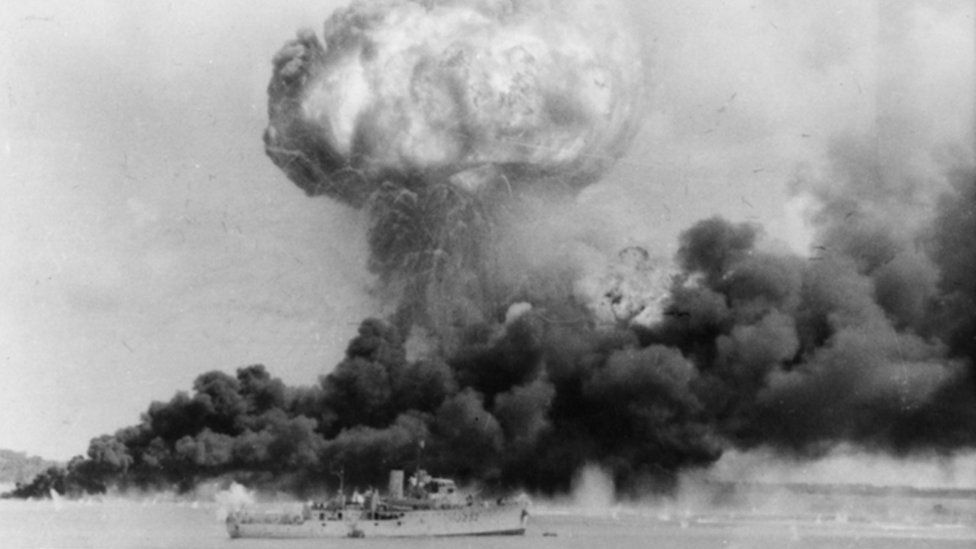-

-
-
Loading

Loading

During the meeting between Australian Prime Minister Anthony Albanese and US President Joe Biden in Washington, the focus will be on deterring an assertive China. Meanwhile, the city of Darwin, which is vital to the US-led defense alliance in the Pacific, is watching closely. Darwin experienced its first taste of war in 1942 when Japanese aircraft attacked the city. The bombings killed hundreds of people and nearly flattened the town. Today, Darwin appears unaffected by the war, but there are concerns that the city could become a target in a future global conflict. Darwin is home to important military bases that could play a crucial role in a clash with China. As Australia strengthens its ties with the US, both governments are investing heavily in Darwin. While this American interest is reassuring for those wary of China's power, some locals fear that it makes their city a target. Local activist Billee McGinley believes that inviting conflict is a dangerous move. She and other members of the Top End Peace Alliance express their concerns about Darwin's vulnerability and the potential sacrifice of their city. Darwin has always been a military town, with military bases dominating the landscape. The presence of defense families and international troops for war games and training further emphasizes the military nature of the city. Additionally, the military's influence on Darwin's economy is significant. Due to deteriorating ties between the US and China and China's increasingly expansive claims, Australia now recognizes its role in ensuring regional security. By relocating troops and investing in defense, Australia aims to fortify the region, and Darwin plays a pivotal role in this strategy. The US has also redirected its attention to Australia and is investing in the country's defense. The US operates a spy base in central Australia and has been conducting military rotations in the Northern Territory, where Darwin is located. Base upgrades and new facilities are part of the US's $2 billion investment plan. The military build-up in the Top End, carried out by both Australia and the US, aims to complicate Beijing's war strategy by dispersing resources and risks across the region. The primary goal, however, is to prevent war from happening. Despite the strategic importance of Darwin, some locals are uneasy about the growing military presence. They worry that this build-up could escalate tensions rather than deter China and potentially involve Australia in a war it should not be part of. Concerns about the impact on Aboriginal cultural heritage and the environment are also raised. The Top End Peace Alliance voices these concerns, but they do not appear to resonate widely within the community or among those in power. Many locals seem nonchalant about the military presence, and the local business chamber and politicians highlight the economic benefits of defense investments. While experts acknowledge the possibility of Darwin becoming a target in a conflict, they emphasize that the decision to join any war is ultimately up to Australia. It is not something the US can determine. Australia's past involvement in coalition operations does not guarantee its participation in future wars. Despite the potential risks, even those who witnessed the bombing of Darwin in 1942 accept the city's current military reality. They understand the need to remember the past while preparing for the future.